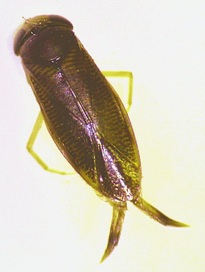Other Services

Botany and plant community biology
The ability to characterise habitats in the context of their physical environment and human use is a key skill in the description of baseline conditions for environmental impact assessments, and subsequent evaluation, management and monitoring.
Harwood Biology provides extensive and in-depth botanical expertise, from undertaking habitat surveys to detailed NVC surveys (in UK) and carrying out habitat classifications within Europe alongside the development of bespoke community analyses in poorly known regions (such as South America, Central Asia and the Arabian Peninsula).
The ability to characterise habitats in the context of their physical environment and human use is a key skill in the description of baseline conditions for environmental impact assessments, and subsequent evaluation, management and monitoring.
Harwood Biology provides extensive and in-depth botanical expertise, from undertaking habitat surveys to detailed NVC surveys (in UK) and carrying out habitat classifications within Europe alongside the development of bespoke community analyses in poorly known regions (such as South America, Central Asia and the Arabian Peninsula).

Ecological Impact Assessment
With extensive experience of undertaking Ecological Impact Assessments (either as stand-alone documents or as parts of larger, multidisciplinary, Environmental Statements) together with the successful completion of reports following UK, European and International (EBRD/IFC) guidelines, Harwood Biology produces clear and readable documentation, which identifies the key ecological issues in a logical manner, making use of analyses to provide sound data as a basis for assessment and evaluation. Where necessary, the Impact Assessment presents practical and cost effective mitigation and meaningful monitoring programmes designed to directly address the core issues.
With extensive experience of undertaking Ecological Impact Assessments (either as stand-alone documents or as parts of larger, multidisciplinary, Environmental Statements) together with the successful completion of reports following UK, European and International (EBRD/IFC) guidelines, Harwood Biology produces clear and readable documentation, which identifies the key ecological issues in a logical manner, making use of analyses to provide sound data as a basis for assessment and evaluation. Where necessary, the Impact Assessment presents practical and cost effective mitigation and meaningful monitoring programmes designed to directly address the core issues.

Aquatic macroinvertebrate analysis
Harwood Biology undertake surveys, identification and analysis of aquatic macroinvertebrate samples in flowing waters for organic pollution levels (using BMWP/ASPT techniques), together with surveys and assessments of standing waters (ponds, lakes, canals).
In some circumstances bespoke monitoring is required, for example when investigations are related to specific inorganic chemicals, such as metal compounds. Under these circumstances correlation analyses of sample data and chemical composition are carried out to identify any likely effects of the chemicals in the water and any observed changes in the invertebrate fauna. This is then used to identify specific impacts and develop appropriate remedial methods.
Harwood Biology undertake surveys, identification and analysis of aquatic macroinvertebrate samples in flowing waters for organic pollution levels (using BMWP/ASPT techniques), together with surveys and assessments of standing waters (ponds, lakes, canals).
In some circumstances bespoke monitoring is required, for example when investigations are related to specific inorganic chemicals, such as metal compounds. Under these circumstances correlation analyses of sample data and chemical composition are carried out to identify any likely effects of the chemicals in the water and any observed changes in the invertebrate fauna. This is then used to identify specific impacts and develop appropriate remedial methods.